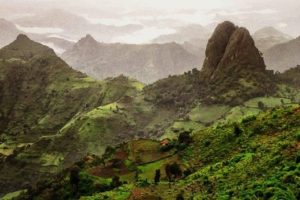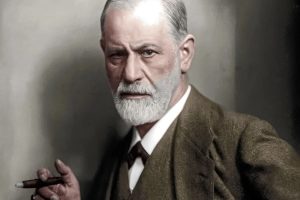Africa is still wrestling from the post-independence hangovers of military coups and counter coups as it is recently manifested in a number of Western African nations like Mali and Niger among others. Democracy is still fragile in Africa even though the African Union (AU) repeatedly vows not to recognize or give legitimacy to regimes that come to power through military coup d’états. The AU is committed to democracy but the elites are not. There are also African countries that are doing well both politically and economically like Nigeria, Ghana, Senegal and others where regular elections lead to more or less representative governments.
However, why Africa has still failed to get rid of these post-independence political and economic hangovers is not a mystery. It is nevertheless a subject matter that is eliciting continued debates among the continent’s academicians and educated elite. What its often missing from the debates is however the cultural factor that is still playing a critical role in shaping or determining the political and economic environment that is serving as fertile ground for political instability and economic poverty in many African countries. One has nevertheless to look at the internal and external actors and factors that are shaping the cultural environment within which these anomalies are producing and reproducing Africa’s predicaments.
For our purpose here, we can divide Africa’s cultural development into three phases. The first phase comprises Africa’s cultural existence before independence, the second after independence and third comprising the present. We all know that the pre-independence period was not remarkable for the cultural development of Africa although it has previously developed its own world views in philosophical terms and built its own traditional value systems that were ignored for a long time simply because they were traditional and did not correspond to the Western conception or misconception of the world and that of Africa in particular.
After independence, African cultures started to gain more recognition and more respect as the first generation of African intellectual elites who were trained in the Westerner colonial capitals had started to claim their pace in the international forums as representatives of their continent’s points of views and Africa’s quest for spiritual revival and open expression of its values and ethics on equal footing to those in the Western world. This was a critical period when African intellectual elites started to properly articulate their thoughts, wrote important books and debated with their Western counterparts on an equal basis although some of their viewpoint were borrowed or shaped by the Western intellectual traditions.
The present moment in Africa’s quest for cultural renaissance is obviously a moment of reckoning. The old Western or colonial world has recognized Africa’s potentials for self-reinvention, to use a philosophical term and for the quest to put its destiny in its own hands. The globalized and Western-dominated world has already recognized Africa’s rights and potentials to create or recreate its own image in the mould of modernity but the same world is posing powerful hurdles along the way to total spiritual liberation of Africa. The great Kenyan statesman Oginga Odinga, Ralia Odinga’s father and independence fighter, had written a memorable book, which is in fact his autobiography in which he analyzed the situation in his country right after independence by entitling his book “Not Yet Uhuru” which meant “not yet freedom”.
His words still echo the truth of Africa’s predicaments in many ways. Africa is both free and not yet fully free in the economic and cultural sense in particular. The shackles of political colonialism are long gone. But those of neocolonialism are not as they were replaced by neocolonialism and now globalization. this is however a situation often deliberately ignored by many African educated elites who have declared an ideological cease fire with the old Western world which is still ruling the planet by other means, mainly with cultural instruments.
Every continent has its own moment of awakening that determines the point of departure for the quest for self-realization when it is time to turn dreams into reality. America as a nation of pioneers found its purpose right after the end of the Civil War between the north and the south and when the collective conscious woke up to the realization of national unity in order to build a new united and mighty world power with the blood and sweat of African slaves that were forcefully taken from their continent aboard slave ships that sailed from the west of the continent to America via the Caribbean and Latin America all the way to the new continent.
Europe too has found its collective purpose a long time ago. It consisted of developing the old continent by exploiting the labor and natural resources of their colonies. There is no common purpose in Asia because it was a continent that was exploited and lacked unity of purpose and action because of the multiplicity of the colonizers that claimed their share of the booties. Africa on the other hand was divided and ruled by depriving of its unity as well as its native culture and native philosophies.
The present moment is a moment of reckoning for Africa mainly because it has achieved the above two purposes of political freedom without achieving economic and cultural freedom in the sense that Africans are free to practice their cultures but they are not free because they are still dominated, dictated and manipulated by the Western cultural establishments that are controlling the world through their might soft powers. According to available information, “Cultural imperialism has been a pivotal tapestry for the acculturation of Africans since the colonial era. It has facilitated mental conditioning of Africans by making them to accept the Western value system as superior and theirs as inferior.”
On the other hand, Western culture is, “A broad term used to describe the social norms, belief systems, traditions, customs, values and so forth that have their origin in Europe or are based on European culture.” The difference between Western and traditional culture is also defined as the former prioritizing the individual while the latter puts emphasis on the group, family, or community. These differences are still alive and kicking and determining the way the Western and African worlds interact by reflecting and reproducing the dominant/dominated old paradigm under new conditions. As Franz Fanon said a long time ago Western world view has turned the African as a “white man in black skin.” This is also the title of one of his books he called Black Skin, White Mask.
What is to be done now that we recognize the strengths and limitations of African cultural self-expression and in struggle with the ever dominant Western cultural establishment? Western culture is still going strong like Johnny Walker on the whiskey advertisement that has long become a symbol of not only British but also Western commercialism, because of the continued
“invention of the scientific method, but also universities, painting and feminism” as one observation suggests.
How can African culture cop with the growing influence of Western cultural practices is not a small matter that can be dealt with calls for African unity or a concerted struggle cultural freedom as many people suggest. This is however time to pass from calls to actions because for the last so many decades, Africans have been calling for that and this and urging the Western powers to do this and that for the sake of humanism or the genuine freedom of Africa in every sense of the word.
Africans should therefore continue to press for change in the relationships between African and western cultures that are based on the dominant/dominated paradigm. The world has long recognized that African culture is part and parcel of human heritage and human civilization in general. Africa is rightly considered home to the first human being and by extension to the first human culture that has evolved through time to produce diversity as the human race has been diversified through long processes of evolution.
As a corollary to the above, it should be clear to the world that Africa has the legitimate right to share from the culture of humanity in general and that of the Western world in particular because the dichotomy between what is ours and what is there’s has been blurred as a result of the convergence of cultures to produce what we nowadays call a globalized culture where one part of the world has a determining voice while the other part is still marginalized. This unequal relationship bodes ill to the equality of all languages and cultures by the mere fact that they are human attributes.
The African educated elites and intellectuals share much of the burden of making African culture more assertive in the global arena while at the turning it as a strong glue that can hold together all African cultures as one attribute of African people who are increasingly yearning to think and act as one people. The vertical or horizontal integration or fusion of diverse African cultures may serve as a bulwark against future encroachments by the still powerful Western culture that is continuing to shape the cultural perceptions of new African generations.
African intellectuals are therefore expected to provide clear perspectives as to how we Africans are going to influence the rest of the world as we are influenced by it. They should therefore work harder to let us look at Africa’s present through the prism of critical cultural perspectives whish may be the only path leading us to genuine freedom so that Odinga’s words “Not Yet Huru” may be turned into, “Now is Uhuru”.
BY MULUGETA GUDETA
The Ethiopian Herald August 13/2023





